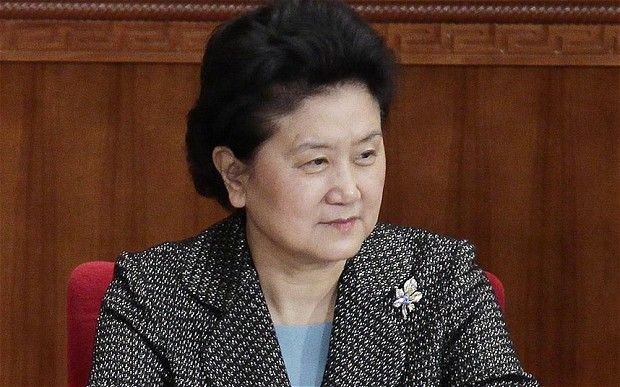Princess-lings: Can China’s First Daughters Make A Name In The Nation’s Mostly Male Politics?

China’s princelings, the sons or male descendants of prolific senior communist officials that use their high-ranking network to reach their own political success, have a mixed reputation in the nation.
While some have gone on to follow in the footsteps of their forefathers, like Xi Jinping, who is president of China, others have made a name for themselves because of corruption and scandal, like fallen princeling Bo Xilai. Now it seems that most of China’s top leaders have daughters, including President Xi, whose daughter is rumored to be enrolled at Harvard.
So, will the new generation of princess-lings be the future of politics in China? Probably not.
According to a series of politician profiles released by Xinhua, a state-run news agency in China, most current leaders have daughters, not sons. President Xi Jinping, Premier Li Keqiang, as well as chairman of the national parliament Zhang Dejiang and three vice-premiers all have daughters. So while this may sound like a promising future for more female presence in the mostly male government, women, historically speaking, have struggled to reach high-ranking official positions. Currently no members of the Central Politburo Standing Committee, the core of China’s government, are female, and only two women hold positions in the 25-member Politburo. In the entire history of the Central Politburo Standing Committee, established in 1927, there has never been a female member.
In fact, it’s more probable that a woman become an astronaut than in the Standing Committee. Nine years after China’s first manned space mission, they sent the nation’s first woman into space, 33-year-old Liu Yang. China will have to wait at least another 10 years before a woman is seen on the Standing Committee.
Another Liu, Liu Yandong, is China’s highest-ranking female politician, one of four vice premiers on the Politburo. As a descendant of Communist party royalty, Liu is perhaps one of the Chinese government’s first princess-lings. She was able to rise to the top of China’s powers through political connections and a portfolio that spans education, engineering, sports and cultural affairs. Still, her story is rare.
“To become a mayor of a big city or a governor of a province, you have to be sort of one of the boys, you have to drink a lot and maybe womanize a bit and also be reasonably corrupt,” Willy Lam, a historian at the Chinese University of Hong Kong said to the South China Morning Post.
According to the report, it may be the future son-in-laws that will be able to benefit politically from their wives princess-ling status. In fact, Wang Qishan, who currently sits on the Standing Committee, is the son-in-law of former vice-premier Yao Yilin.
The daughters of top leaders in China, whose identities and whereabouts are kept under wraps, are in good company, though. Former presidents Bill Clinton and George W. Bush and President Barack Obama all have daughters who have become household names, though not for positions in politics. Additionally, Taiwanese President Ma Ying-jeou and Russian leader Vladimir Putin each have two daughters.
Perhaps China is still recovering from Mao Zedong’s wife, Jiang Qing, being behind many of the decisions that brought on the Cultural Revolution, a movement that paralyzed China socially and economically.
© Copyright IBTimes 2024. All rights reserved.






















